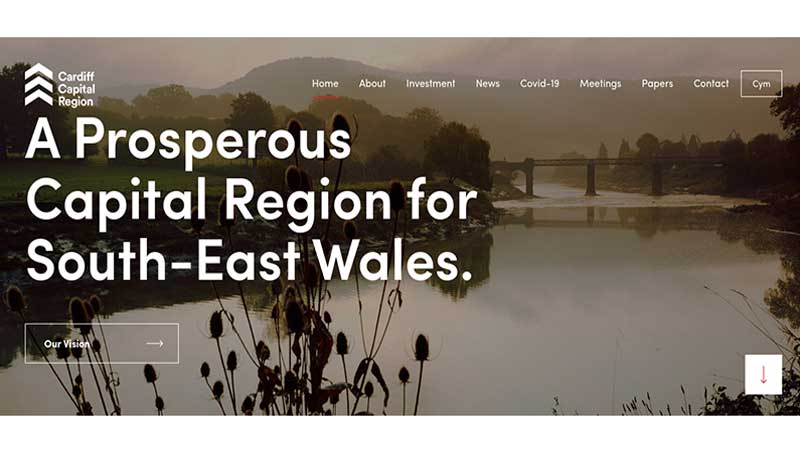
Back to a better future
This blog post was first published on BusinessNewsWales.
Two hundred years ago the Industrial Revolution uncoupled mankind from nature. As a species we tied ourselves to a take-make-waste system, resulting in unfathomable and catastrophic implications for our planet. Who led this transformational industrial era? None other than South Wales, which pioneered an extraction-based economy that exported the coal and iron ore capable of feeding one third of all demand worldwide, often at a terrible cost to the humans involved and the world we live in.
The past two centuries (and the world today) could have been oh-so-different if the work of a Welsh genius had been embraced. Back in 1842, the remarkable inventor William Robert Grove had a vision of how to produce fuel cells capable of extracting the most abundant element in the universe – Hydrogen – as a clean energy fuel, rather than relying on the wasteful and inherently pollutant process of burning natural gas.
If he were alive today, Sir Robert (as he became known) would be incredibly excited to see another window opening to a clean, sustainable and potentially civilisation-saving game changer. BlackRock, the world’s largest asset manager, has just established a $1Bn fund to back opportunities in the Circular Economy. It offers a genuine and much-needed alternative to our past economic model. And it promises sustainable growth that can address what many see as a looming global crisis caused by climate change, societal inequity and a growing dissatisfaction with many levels of governance.
A growing investment in a new fuel for a new era.
Fuel cells have advanced significantly and cost effectively in recent times, generating electricity supply where the only by-product is water. So the moment to seize the hydrogen moment is ‘now’ – a fact borne out by BlackRock’s assets with a circular focus seeing public equity fund investments increasing six fold in the first eight months of 2020, from $0.3Bn to $2.0Bn.
Within just a few decades all our energy needs – including those for industry, transport, buildings and agriculture – will have to come from carbon free sources. So the potential for hydrogen to fuel cars and homes whilst driving up the renewable power infrastructure investment, to create green hydrogen, is a compelling “win-win”. Not least because a decarbonisation model based exclusively on electricity networks would require large scale overhead electricity lines to meet demand which is impracticable and extremely expensive. Conversely, hydrogen can simply rely on a modified version of the existing gas works infrastructure.
The time for the Hydrogen Revolution and the Circular Economy has truly come – designing-out waste and pollution to reduce greenhouse gases across the value chain, keeping products and materials in use to retain the energy embodied within them – and regenerating natural systems to replace carbon in soils and products.
Companies – and Countries – are leading this Decarbonisation Revolution.
Leading energy companies have established collaborative relationships with the aim of decarbonising the energy sector, developing large-scale hydrogen storage and distribution models to shape the future energy environment. Among the G20 and European Union, eleven countries have policies in place that directly support investment in hydrogen technologies – and nine have national road maps for hydrogen energy. With good reason…
Countries and companies alike are facing a converging funnel of constraints implicit in the linear economy model, from environmental pressures, resource depletion and commodity price shocks, to cumulative waste (including CO2), regulatory constraints (such as fuel efficiency mandates), recycling targets and, of course, consumer pressure.
The all-important Next Step
The mission is to achieve sustainability where the growth drivers are not obsolescence, resource consumption and depletion – through new models that embrace environmental constraints, economic inclusion and long term recurring income streams.
A new fuel for a new era is a huge step for all stakeholders. It’s also a moment of danger for any country that misses making that step – particularly Wales, where the invention began and where the expertise remains. This is the perfect opportunity for Wales to be a World leader and champion a new era once more.

